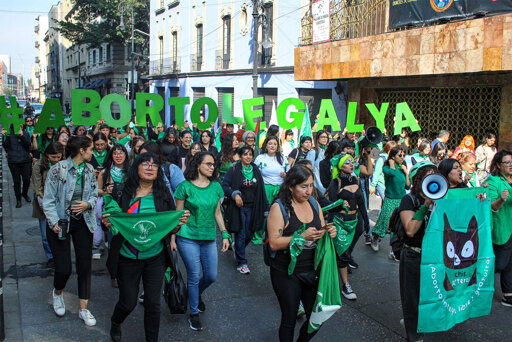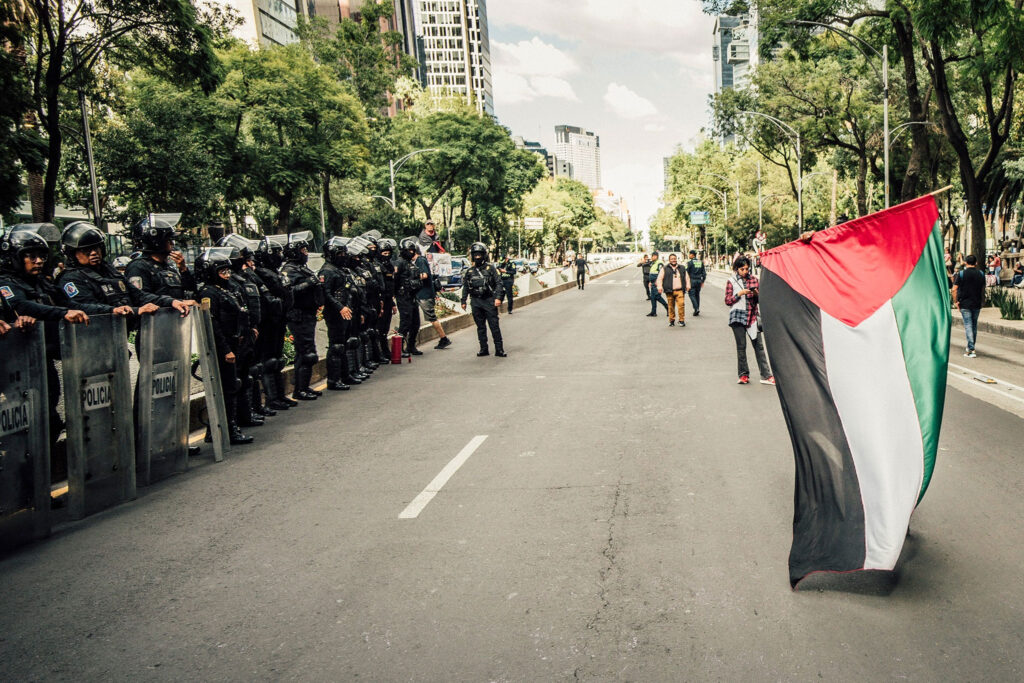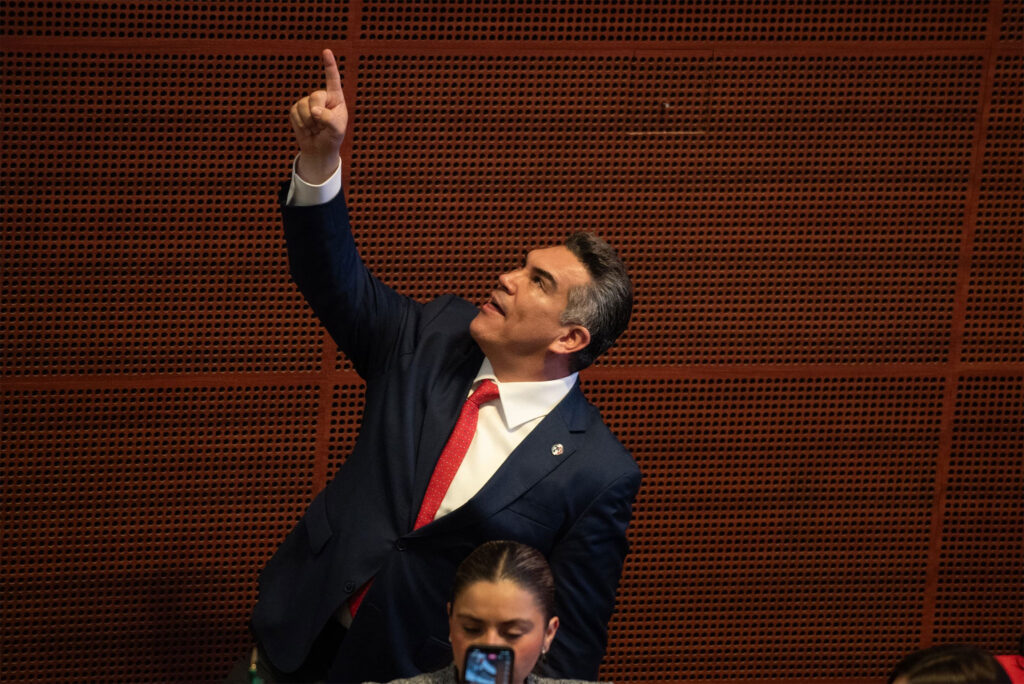This article by Gabriel Vera Lopes originally appeared in the October 1, 2025 edition of Rebelión.
With the Fourth Transformation, various sectors of the feminist movement—which have fought for expanded rights for years—gained access to government institutions. The articulation of their demands, along with the government’s openness to their demands, has been a key factor in advancing the rights of women and sexual dissidents.
In this context, Mexico has seen significant progress in recent years regarding voluntary abortion. However, the legal abortion landscape in the country is a patchwork of regulations that varies considerably across states. This is due to the autonomy of each state, which has its own penal code and specific regulations.
This is how feminist anthropologist Brenda Arias explains it in a conversation with Brasil de Fato, noting that currently, of the 32 federal entities (31 states and Mexico City), 24 have legalized abortion up to 12 weeks, while in 8 states it is only legal under certain circumstances. In the latter, however, abortion remains criminalized.
Arias, who has been involved in feminist spaces for years and works as an abortion counselor, affirms that “motherhood should not be something forced or compelled” and that women should have “autonomy to decide about their own lives and bodies.” She is also convinced that the “oppression of female and pregnant bodies” is a factor that underlies “many of the oppressions and discrimination that women and pregnant people still suffer today.”
A Story of Gradual Progress
The legislative process began in April 2007, when Mexico City became the first jurisdiction in the country to legalize voluntary abortion. The reform allowed the procedure to be performed in public hospitals run by the local Ministry of Health up to the first 12 weeks of pregnancy. After that period, abortion is only possible under certain circumstances, such as risk to the woman’s life, serious fetal malformations, or rape.
The second precedent would come almost twelve years later. In September 2019, Oaxaca became the second Mexican state to decriminalize abortion up to 12 weeks of gestation. In this case, the reform was implemented by amending the state Penal Code, which previously imposed penalties of six months to two years in prison for those who terminated their pregnancies. However, the measure did not advance comprehensive legalization.
Although each state has the power to legislate within its territory, the situation took a decisive turn in September 2021, when the Supreme Court of Justice of the Nation (SCJN) ruled that the criminalization of abortion is unconstitutional. The ruling opened the possibility not only of decriminalization, but also of legalization throughout the country, considering that criminalizing the practice violates women’s reproductive autonomy.
The ruling explicitly included “persons with the capacity to gestate,” to ensure effective recognition and visibility for those who, belonging to gender identities other than the traditional concept of women, have the biological capacity to conceive, such as transgender men or non-binary individuals. In doing so, the court expanded the protection of reproductive and gender identity rights.
Following the ruling, various state legislatures began to harmonize their local laws. However, others maintained prison sentences for those who performed abortions, leading to legal disputes that forced several states to comply with the Court’s ruling. As an example of these tensions, on June 5, the Guanajuato Congress voted against the decriminalization of abortion.
Historically Penalized
Historically, abortion has not been treated as a health issue, much less as a rights issue; rather, its inclusion in the Penal Code indicates that it was conceived as a crime.
“By not eliminating the criminalization of abortion from its penal code, a state violates the human rights of pregnant people, who are often punished not only socially but legally, and can even be arrested for having an abortion,” explains Brenda Arias.
The anthropologist affirms that the legislative and social advances of recent years have been closely motivated by women’s and feminist movements, which fight for the “need to recognize the autonomy of pregnant bodies.”
It was these struggles, Arias points out, that enabled and promoted the articulation of feminist movements and their demands within both local and national governments, which in turn facilitated progress in access to rights.
Decriminalization & Legalization
International organizations such as the World Health Organization (WHO) and the United Nations point out that access to safe abortion is an essential component of sexual and reproductive health. These institutions warn of the serious risks of criminalizing this practice and emphasize that guaranteeing access to it is a matter of public health and human rights. They consider this right a fundamental pillar for health, well-being, autonomy, and gender equality, recognizing it as a crucial right.
“Abortion is a very simple medical procedure. And in this sense, the fact that the State recognizes it as a right serves to facilitate the tools so that people can access these types of medical services,” Arias points out.
The differences between decriminalization and legalization are an important point. Arias explains that the importance of moving toward legalization, beyond decriminalization, lies in the fact that the former “more comprehensively covers” voluntary abortion. While decriminalization is limited to eliminating the criminal penalty, legalization implies that “all state institutions”—health, women’s, and even labor—”would be obligated to take action to guarantee” access to safe, free, and affordable abortions for pregnant people.
This, for example, would allow workplaces to grant leave for the days necessary for the procedure, treating it as a health service. “Furthermore, it would require public officials to receive certain training to be able to provide appropriate support,” so that they are familiar with the procedures according to the World Health Organization’s recommendations.
From Decriminalization to Legalization: Abortion in Mexico
October 1, 2025October 1, 2025
Mexico is making progress on reproductive rights, but differences between states produce an uneven landscape in reproductive health.
Feminists Collectives Stop israeli Participation in Sinaloa Cultural Festival
September 30, 2025
Under pressure, ISIC will withdraw the israeli artist’s work, remove israel’s name from official advertising and officially condemned the genocide in Gaza.
Campeche Properties Linked to PRI President to be Expropriated for University
September 30, 2025September 30, 2025
PRI President Alejandro Moreno has thus far managed to evade having his immunity stripped to face corruption investigations in the state.
The post From Decriminalization to Legalization: Abortion in Mexico appeared first on Mexico Solidarity Media.
From Mexico Solidarity Media via this RSS feed





